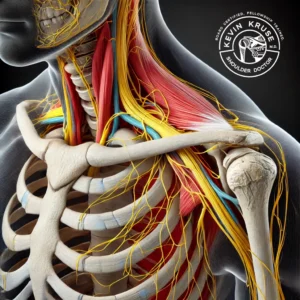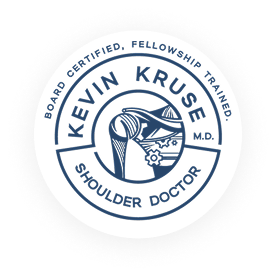All You Need to Know About a Pinched Nerve in the Shoulder
A pinched nerve in the shoulder is when neck nerves are compressed or irritated, either in the neck or shoulder area, leading to varying degrees of pain and disability. Having knowledge of what causes, symptoms of, and treatment of this problem is important in getting relief or avoiding future issues. This guide breaks down everything you need to know about it, providing tips and some insight into this common health concern.
What Causes a Pinched Nerve in Shoulder
A pinched nerve happens when too much pressure is applied to a nerve by surrounding tissues, such as bones, cartilage, muscles, or tendons. The pinched nerve in the shoulder is usually caused due to the following factors:
- Injury or Trauma:
Tough injuries from accidents or falls may directly compress nerves found in the shoulder area (for example, brachial plexus) and create pain and reduced mobility. - Poor Posture:
Slumping in a chair or otherwise poor posture for long periods takes a toll on the neck and shoulder, leading to nerve pinching. - Overuse or Repetitive Strain:
Performing the same actions repeatedly over time—lifting heavy objects or playing sports, for example—can cause inflammation or swelling that squeezes a nerve. - Herniated Disc:
One of the discs in the cervical spine (neck) can slip or rupture, putting pressure on nerves going to the shoulder. - Bone Spurs or Arthritis:
These conditions can create structural changes that irritate or compress surrounding nerves. - Obesity:
Being overweight puts extra pressure on the joints and the nerves, which makes compression more common.
Symptoms of a Pinched Nerve
The symptoms of a shoulder pinched nerve vary from another based on the extent of compression and nerves being affected. Common signs include:
- Pain: A sharp, burning, or aching pain that radiates from the shoulder to the arm or neck.
- Numbness: Loss of sensation in the shoulder, arm, or fingers.
- Tingling or Pins and Needles: A “prickly” sensation commonly referred to as pins and needles.
- Weakness: Unable to lift objects or perform tasks that require strength from the shoulder.
- Mobility Impairment: Inability to move the shoulder or arm comfortably.
If pain is intensifying or is accompanied by other disturbing symptoms such as muscle atrophy, you must seek medical attention.

Diagnosing a Pinched Nerve
Diagnosis of a pinched nerve in a shoulder is done through a combination of the following by a healthcare practitioner:
Physical Examination:
Your physician will assess your posture, shoulder mobility, and strength to find areas of pain or weakness.
Medical History:
Questions about your symptoms, lifestyle, and any recent injuries can help identify the cause.
Imaging Tests:
-
- X-rays: Used to find bone spurs or arthritis.
- MRI: Good images on soft tissue including nerves and muscles.
- CT Scans: Usually combined with X-rays to get a clearer image of the infected region of the body.
Nerve conduction studies (NCS):
Tests the speed and strength of electrical signals in nerves to assess for compression or damage.
Treatment Options for Relief
How to treat a pinched nerve: The treatment of a pinched nerve depends on the severity of the condition. Here are some useful strategies:
Medications:
-
- Anti-inflammatory, over-the-counter pain relievers, such as ibuprofen or naproxen.
- Severe cases may require prescription medications like corticosteroids.
Physical Therapy:
A physical therapist can create an individualized exercise regimen to increase strength in surrounding muscles, increase mobility, and relieve compression on the nerve.
Activity Modification and Rest:
Refrain from activities that increase the pain, and give it time to heal. Then encourage gentle movements to avoid stiffness.
Home Remedies:
-
- Ice and Heat Therapy: Ice packs reduce swelling; heat relaxes tight muscles.
- Stretch and Massage: Gentle stretching and soft tissue work can help relieve tension.
Surgical Intervention:
In rare instances when conservative treatments don’t work, surgery may be required to relieve pressure on the nerve.
Exercises for a Pinched Nerve
Doing the right exercises may reduce pain and help you heal faster. Here are some of the stretches and movements I recommend:
- Neck Tilts:
While sitting upright, slowly lean your head toward one shoulder until you feel a stretch. Hold for 15-30 seconds, then repeat on the other side. - Doorway Stretch:
Stand in a doorway with arms at shoulder height, hands on the doorframe. Step forward lightly to open the front of your shoulders. - Pendulum Exercise:
Lean forward, letting your affected arm dangle. Sway it up and down to loosen up the shoulder joint. - Shoulder Blade Squeeze:
Sit up straight and squeeze your shoulder blades together, holding for a few seconds and then releasing. - Child’s Pose:
Keeping your knees down, stretch your arms forward and lower your chest down to feel a stretch in your shoulders and back.
Chiropractic Treatment for Pinched Nerves
Chiropractic adjustments are intended to realign the spine and relieve pressure on pinched nerves. A chiropractor might use techniques like:
- Spinal Manipulation: Realigning the cervical spine.
- Soft Tissue Therapy: Relieving stress on the adjacent muscles.
- Mobilization & Stretching: Increasing range of motion at the shoulder joint.
It should be noted that consulting a licensed chiropractor is imperative to determine if this solution is right for your condition.
When to See a Doctor
Seek medical attention if:
- Symptoms do not improve or get worse after a few weeks of self-care.
- The pain is severe, or you have weakness in your muscles or loss of bladder control.
- The condition substantially limits major life activities.
What Sleeping Positions Do to Your Nerves
You may sleep in certain positions that tighten the shoulder nerve. To help with sleep and minimize pain:
- Do Not Sleep on the Injured Side: Putting pressure on the shoulder can exacerbate symptoms.
- Use an Auxiliary Pillow: A cervical cushion keeps the neck properly aligned.
- Sleep on Your Back: This position reduces strain on the shoulders.
Tips to Prevent Pinched Nerves
To avoid a pinched nerve, you should adopt a healthy lifestyle and good habits:
- Maintain Proper Posture:
Sit and stand with your shoulders back and your head in line with your spine. - Take Breaks:
Don’t hold one position too long, most especially if you’re deskbound. - Strengthen Shoulder Muscles:
Exercise regularly to strengthen the shoulder and neck areas. - Practice Ergonomics:
Invest in ergonomic chairs, keyboards, and tools to minimize strain. - Healthy Weight:
Maintaining a healthy weight relieves strain on joints and nerves.
Pinched Nerve vs. Other Conditions
The symptoms of a pinched nerve can mimic those of other shoulder conditions. Here’s how they differ:
- Rotator Cuff Injury: Pain in certain movements, but rarely causes tingling or numbness.
- Frozen Shoulder: Characterized by stiffness and restricted movement without referred pain.
- Tendonitis: Inflammation of tendons resulting in focal pain, not nerve symptoms.
Frequently Asked Questions
- Does a pinched nerve go away on its own?
Yes, the majority of pinched nerves will improve with rest and conservative treatment in a matter of weeks. - Is a pinched nerve dangerous?
Untreated nerve compression can cause permanent damage in severe cases, but this is rarely life-threatening. - Can a pinched nerve be caused by stress?
Stress can also cause muscle tension, which can indirectly cause nerve compression. - How long does a pinched nerve take to heal?
Recovery may take days to months, depending on the severity of the condition and the treatment used. - Can a chiropractor aggravate a pinched nerve?
Chiropractic care is considered safe when performed by a trained and licensed practitioner. But taking the wrong precautions can worsen the situation.
While a pinched nerve in the shoulder can be bothersome and inconvenient, relief is possible if you take proper care of yourself. Knowledge is power: Understanding the causes, symptoms, and treatment options empower you to take charge of your health and recovery.

